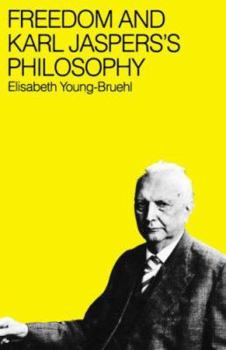Freedom and Karl Jasper's Philosophy
As a founding father of Existentialism, Karl Jaspers has been seen as a twentieth-century successor to Nietzsche and Kierkegaard; as an exponent of reason, he has been seen as an heir of Kant. But studies tracing influences upon his thought or placing him in the context of Existentialism have not dealt with Jasper's concern with the political realm and how we think in it and about it. In this study Elisabeth Young-Bruehl explicates Jasper's practical...
Format:Hardcover
Language:English
ISBN:0300026293
ISBN13:9780300026290
Release Date:November 1981
Publisher:Yale University Press
Length:234 Pages
Weight:0.95 lbs.
Dimensions:0.7" x 5.5" x 8.5"
Customer Reviews
0 rating





